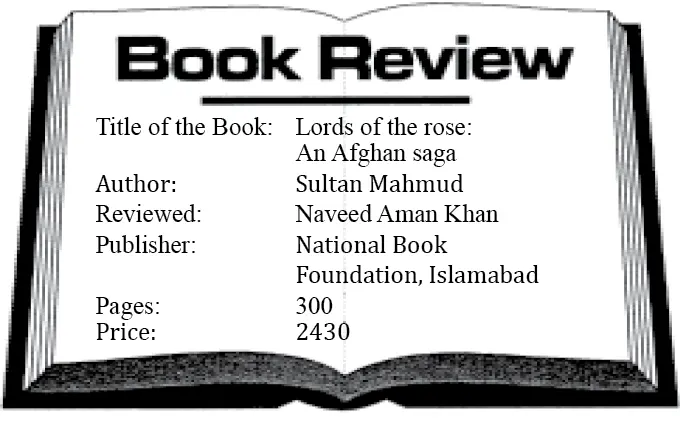THE Book ‘Lords of the Rose – An Afghan Saga’ traces the history of both Afghanistan and Pakistan, its Pashtun belt, its fault lines and the personalities that shaped them. It is a narration of unfolding events that impacted on Pakistan and the region. Specifically, it focuses on the period from the pre-Jihad days to the exit of the US Forces on August 15, 2021, in Afghanistan. It is aimed to correct the negative biases that one reads of Pakistan’s role in Afghanistan, a theme some authors find convenient to stress upon.
It is an attempt to challenge those perceptions and narratives that were often quoted as the root cause of the situation in that country. The last forty years saw reason, humanity and compassion missing in Afghanistan. There is anger with no end. It was with this purpose that I thought to elaborate how I read the entire Afghan episode and conclude a possible direction it is taking. Heading a Desk that covered Afghanistan for 18 years and being posted as Pakistan’s Defence Attaché to Kabul from November 2000 to 20 September 2001, gave me an opportunity to witness the Taliban’s first rule and their fear of the US reprisal after 9/11.
Was privy to the knowledge of how Pakistan’s Afghan policies were formulated and played out during the period under discussion. These were extremely compelling times, the rise of the Taliban in 1994, fall of the Rabbani Government in 1996, UBL and 9/11, the killing of Ahmed Shah Masoud, the US invasion of Afghanistan, the re-emergence of the Taliban and the collapse of Kabul again. Finally the circle completes with the Taliban again in power on August 15, 2021.
One cannot hurry too much in Afghanistan; it has its own pace. Interpretations of facts differ within the geographical zones of that country. The Tajiks and Panjshiris see events from their shores as do the Pashtuns, Uzbeks and the Hazaras!
Afghanistan has had its share of turmoils and upheavals with many foreign reigns leaving a part of their legacy. Through it all the Pashtuns retained a fierce independence having never been truly conquered. An effort has been made to link the past with the present. Pakhtunwali, Riwaj, Sharia all have their places in Afghan society. Afghans, through the centuries survived the British, Soviet and the American invasions. Their resilience is visible.
A deeper study reveals all these inter-twining relations, love and bitterness, resentment, rancour, faux pas and grievances as leftover emotions from history and can be traced to the past. They will continue to play a perpetual role in Pakistan-Afghanistan relations in the future.
The author has tried to analytically cover the causes and reasons of US failure in Afghanistan, lessons that emerge when dealing and occupying a tribal society, role of neighbouring States including India, suggestions on a possible future Afghan leadership and Pakistan-Afghanistan relations. He has met a large number of Afghans, many who participated in the Jihad, the intellectuals, Afghan Pashtun tribal elders, Afghan leaders both of the Taliban and the Karzai/Ashraf Ghani period and a large number of significant Senior Pakistani officials who understood the Afghan dilemma.
—The writer is author of several books based in Islamabad.










